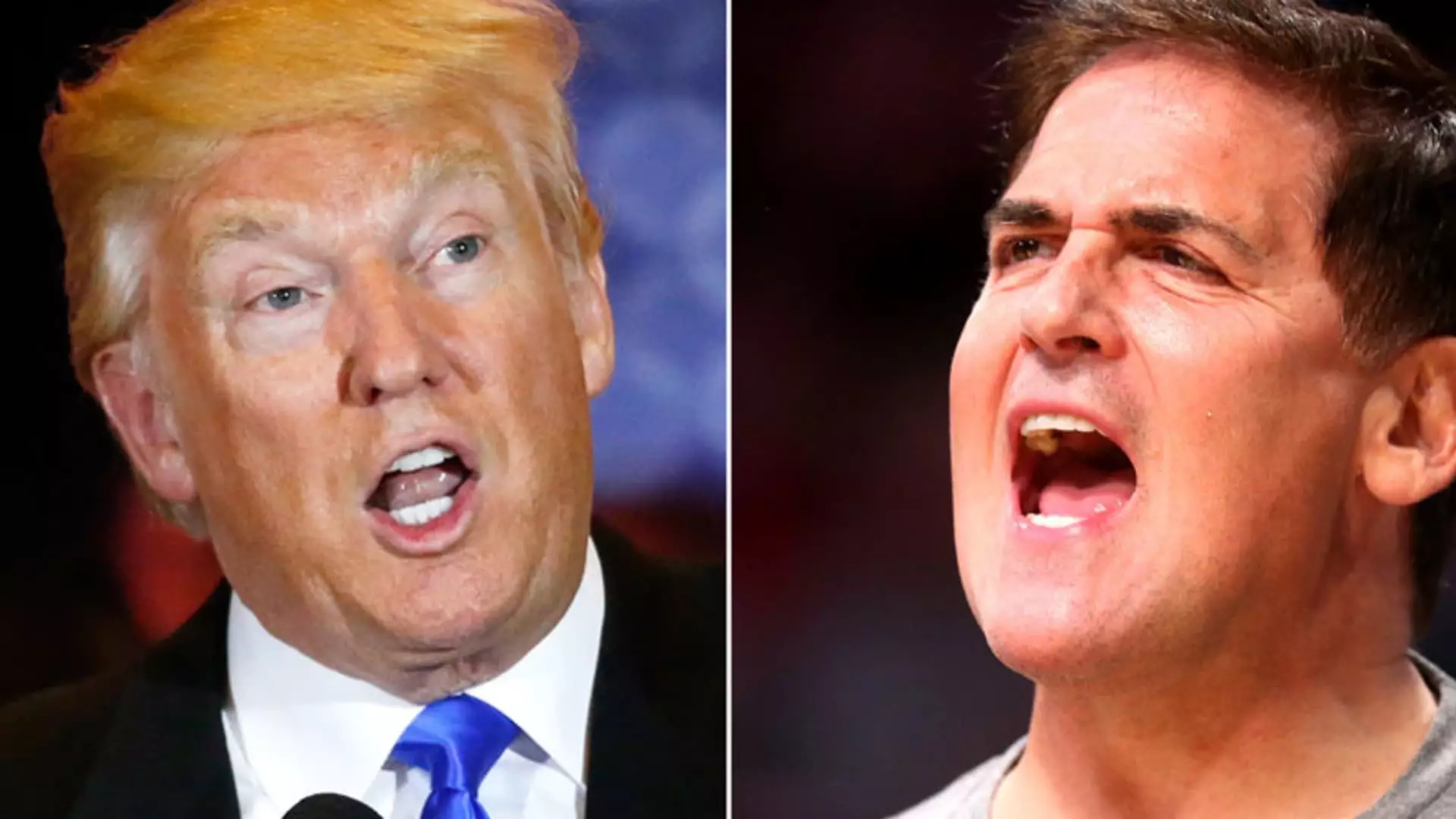In the heated arena of American politics, few confrontations are as noteworthy as that between former President Donald Trump and billionaire entrepreneur Mark Cuban. Once on friendly terms, their relationship has soured dramatically, underscoring the volatile nature of political alliances and rivalries among the ultra-wealthy. Trump’s recent contemptuous remarks towards Cuban reveal a deeper, ongoing struggle for influence and public support, especially as they navigate the complexities of an election cycle fraught with ideological battles.
Once, in 2015, Mark Cuban, the high-profile investor known for his role on “Shark Tank,” publicly praised Trump, even labeling him the “best thing to happen to politics in a long time.” This early endorsement signifies how political fortunes can shift rapidly. Now, years later, their paths have diverged dramatically, leading to an exchange that highlights both personal animosity and broader political strategies. In a Truth Social post, Trump disparaged Cuban as a “Loser,” characterizing him as a “weak and pathetic ‘bully'” and questioning his athletic abilities. These insults were not just personal jabs; they were strategic efforts to undermine Cuban’s influence as he rallies support for Vice President Kamala Harris.
The source of contention primarily revolves around economic perspectives, particularly tariff policies championed by Trump. During a Harris rally, Cuban challenged Trump’s understanding of these tariffs, stating, “he thinks that China pays for them.” This comment strikes at a critical component of Trump’s economic platform, which proposes significant tariffs on imports, particularly a staggering 20% across the board and a 60% rate for Chinese goods. Economists have expressed concern that such extreme tariffs could impose significant costs on American consumers and businesses, reinforcing Cuban’s stance as a defender of more economically sound policies. The clash over tariffs reveals the stakes involved in their rivalry—not merely personal disputes but foundational beliefs about U.S. economic direction.
The Stakes of Influence
Cuban’s move to actively support Harris’s campaign reinforces your typical template for billionaire involvement in politics where personal interests and public policies intertwine. His potential aspirations for a governmental role, such as replacing SEC Chair Gary Gensler, indicate that he is not just a supporter but a player actively seeking influence. Meanwhile, Trump’s alignment with fellow billionaire Elon Musk serves as a counterbalance to Cuban’s support for Harris, showcasing how deeply entrenched these corporate titans are in contemporary political conflicts.
The evolving dynamic between Trump and Cuban exemplifies how relationships can transform under the pressure of political competition. Their public spat not only entertains but highlights the fragility of alliances and the constant recalibration of self-interest in American politics. As this election campaign unfolds, the confrontation will likely serve as a bellwether for how public figures navigate their roles in shaping political narratives and influencing voter sentiment.
The feud between Trump and Cuban is more than just a clash of personalities; it reflects deeper ideological conflicts and the shifting landscape of political endorsements among America’s power players. Observers should keep an eye on this rivalry, as it illustrates the broader themes of influence, economic strategy, and the fragility of political relationships in the ever-evolving electoral landscape.


Leave a Reply